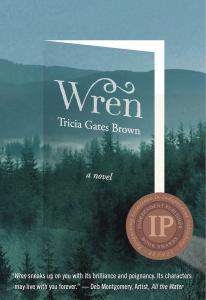
On the surface, this week’s lectionary reading at the end of John (John 20:19-31) is a story about doubt and trust, and a recounting of an appearance by Jesus before his disciples post-entombment. But I can’t read it without drawing in biblical studies. Because one of the key aspects of this passage is the statement “Blessed are those who have not seen and yet have believed.”
John was the last of the gospels, written many decades after Jesus’ life. The writer of the gospel and the leaders behind his community did not know Jesus face-to-face. They were among those who “had not seen, yet they believed” because they did not serve as witnesses to Jesus’ life on this earth. So this story is, on an important level, about the authority of the leaders behind the gospel of John. It is saying, we may not have known Jesus, but we have just as much authority as churches founded by the apostles!
In this context, the statement “Blessed are those who have not seen and yet have believed” has a competitive ring to it. I draw attention to this not only because it’s interesting, but because this story about “doubting Thomas” has often been used to guilt people for not believing enough, or not believing the right things. Maybe it is not saying this at all.
Trust Over Creed
Increasingly in podcasts or in news stories, I hear references to the fact that Americans on the whole—especially younger people—drift away from religion. It seems every year this chorus grows louder. Maybe you notice this among people in your life or in your community. I feel strongly that an emphasis on beliefs misleads people to think the faith life is about believing the right things—when it is really about love, and a mature trust in God as a benevolent presence in one’s life. We have all known people who can rattle off the right beliefs yet who put their full trust in money or power, or show very little kindness to others. Beliefs just don’t get us far without crucial things like kindness and rootedness and trust.

Then Why the Creed?
But then why do liturgical traditions stand up each Sunday and recite the creed, stating what “we believe”? Especially when some of us have as much doubt as belief when it comes to various statements of the creed? In large part, liturgical churches do this because it is an ancient part of our tradition and it reminds us who we are as a community stretching back 2000 years. The word “credo” in Latin is related to the word “heart.” In the sense of the ancient creed, to “credo” something doesn’t mean to accept it in your head. It really means to embrace it with your heart—as a part of a historical community rooted in those stories. I especially like the “we believe” language of the Nicene Creed. In saying “we believe” it defines the traditions of an “us.” Those who say this creed can embrace it with our hearts, as part of a community, even if we–like Thomas—need to experience things for ourselves before we can trust.
My Wish for Young People
What I wish most for people is trust and inclusion in loving community. What I wish most for young people is communities teaching them kindness, encouraging trust in God, and lighting their paths through life so they develop values, character, and strength for the journey. In my view, healthy faith communities do this well. They teach us how to live for others and to speak the truth. These are the things that are important, not clinging to the “right” beliefs.
Lives shaped by right beliefs can be rigid and exclusionary. Lives shaped by trust can be open and embracing, steady and resilient. When we look at the lives of saints among us, these latter qualities define them.
If you liked this article please leave me a comment below; I am interested in your perspective. To support my writing, please subscribe and share with a friend!
Wren, winner of a 2022 Independent Publishers Award Bronze Medal
Winner of the 2022 Independent Publisher Awards Bronze Medal for Regional Fiction; Finalist for the 2022 National Indie Excellence Awards. (2021) Paperback publication of Wren , a novel. “Insightful novel tackles questions of parenthood, marriage, and friendship with finesse and empathy … with striking descriptions of Oregon topography.” —Kirkus Reviews (2018) Audiobook publication of Wren.
















